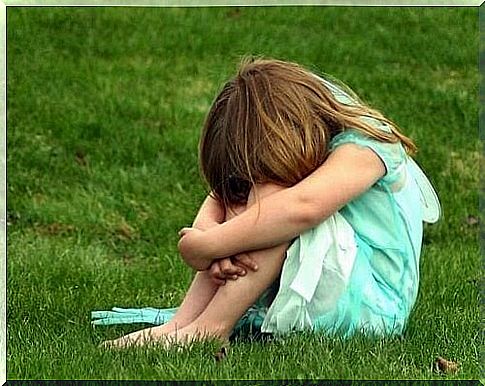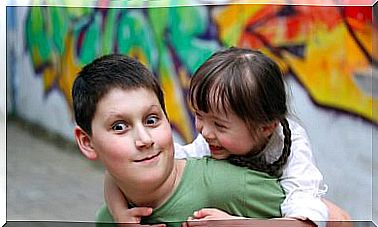3 Self-esteem Problems In Children

Parents should closely monitor self-esteem problems in children, as the image they project as they grow depends on this. The best way to determine if you are in the presence of these types of disorders is to monitor your behavior.
What is self esteem?
Self-esteem is understood as the awareness of a person’s own value; it is an essential part of the child’s upbringing. Through it, acceptance is achieved and self-love is directed toward healthy personal relationships. In other words, it is the existing analogy between the child’s way of being and the environment that surrounds him.
Importance of self-esteem in the child
Healthy self-esteem is important at any age; however, in children it marks their healthy development. In addition, it stimulates learning processes, which fosters good relationships with the environment and allows for happiness. A child with a stable self-esteem is confident, competent, feels valuable and an active part of society.
On the contrary, a boy with a deteriorated or low self-esteem can become a critical and shy individual. Unfortunately, these attitudes can lead him to develop aggressiveness, which makes it difficult to adapt to the context in which he develops.
3 common self-esteem problems in children
The conception that each person has about himself can give rise to self-esteem problems in children. Being a variable state and influenced by external factors, it causes changes in behavior worth observing.
Regarding this, experts point out at least three difficulties in children, which can be:
1. Inflated self-esteem
It is also known as false self-esteem and is not healthy for those who have it. In children, it is identified when they tend to be conceited and demand things because they think they are right. In addition, they feel the need to demonstrate achievements and qualities to all people to obtain recognition.

In general, this condition appears when the child does not receive the attention, admiration and affection from their parents.
This need leads him, in an unconscious way, to exaggerate his image to be accepted and receive attention from the environment. Also, when there are no limits to parenting, he is allowed to believe that he is right or is admired excessively.
2. Low and constant self-esteem in children
This is one of the self-esteem problems in children that parents face the most. These children are characterized by being individuals who minimize themselves in any circumstance, without being able to respond to positive or negative stimuli.
In general, they tend to be indecisive, have a great fear of teasing, failure and do not defend what they think. This problem can appear when they are affected by the demands of society, and even parents.
Then, not being able to live up to what is asked of them, they stop trying. Over time, they become pessimistic and negative individuals.

3. Low and unstable self-esteem
It is that type of self-esteem that is significantly influenced by stimuli from the outside world. Faced with positive events, it reaches high levels, but as the moment passes it declines again.
It is difficult to detect in small ones because of how changeable they can be; however, some of the signs of this problem are:
- Quiet children, but who become irritable when faced with constructive criticism.
- They are anxious about events that require responsibility, for example a school assignment. This is because they believe that they cannot fulfill it correctly.
- They fear achievement.
- They lie, cheat, become aggressive or very shy.
Generally, this problem arises when the child is exposed to comparisons by parents or teachers. It also occurs when they face bullying or when going through an episode that causes them shock, such as the arrival of a baby brother.
In summary, knowing the self-esteem problems in children can help parents to act on time. Family support is essential to overcome the obstacles that arise at this age. Without a doubt, love, affection and understanding will mark the contrast.










